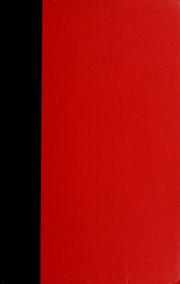| Listing 1 - 10 of 21 | << page >> |
Sort by
|
Book
ISBN: 9782841623938 2841623939 2841623939 9782841623938 Year: 2016 Publisher: Paris: Éditions de l'éclat,
Abstract | Keywords | Export | Availability | Bookmark
 Loading...
Loading...Choose an application
- Reference Manager
- EndNote
- RefWorks (Direct export to RefWorks)

ISBN: 9782220036601 222003660X Year: 1995 Publisher: Paris: Desclée De Brouwer,
Abstract | Keywords | Export | Availability | Bookmark
 Loading...
Loading...Choose an application
- Reference Manager
- EndNote
- RefWorks (Direct export to RefWorks)
Book
ISBN: 0197578438 9780197578438 Year: 2021 Publisher: New York (N.Y.): Oxford university press,
Abstract | Keywords | Export | Availability | Bookmark
 Loading...
Loading...Choose an application
- Reference Manager
- EndNote
- RefWorks (Direct export to RefWorks)
"Power, Privilege, and Entitlement situates entitlement among related terms that help explain inequality, such as power and privilege. This chapter defines entitlement and details the way entitlement is measured. Experiments that assess entitlement find reliable differences in women's and men's sense of entitlement. Men tend to have an inflated sense of entitlement relative to women. White individuals tend to have a higher sense of entitlement compared to people of color. In addition to entitlement to pay, research on academic entitlement is examined as well. Academically entitled students hold attitudes toward learning and teachers that they should receive more from their academic experience than they put in; that professors should bend rules for the them; that they should not have to work as hard as others. Academic entitlement is correlated with academic disengagement, cheating, and classroom incivility"--
Entitlement attitudes --- Social ethics --- Attitude (Psychology) --- Equality
Book
Year: 2008 Publisher: [Washington, D.C.] : U.S. Govt. Accountability Office,
Abstract | Keywords | Export | Availability | Bookmark
 Loading...
Loading...Choose an application
- Reference Manager
- EndNote
- RefWorks (Direct export to RefWorks)
Entitlement spending --- Entitlement attitudes --- Government spending policy
Book
ISBN: 150955971X 9781509559701 1509559701 9781509559718 Year: 2024 Publisher: Cambridge: Polity press,
Abstract | Keywords | Export | Availability | Bookmark
 Loading...
Loading...Choose an application
- Reference Manager
- EndNote
- RefWorks (Direct export to RefWorks)
"Male and white privilege are on the decline, yet elite privilege has gone from strength to strength. The privileges enjoyed by the rich and powerful are not only unfair but cause widespread harm, from the everyday slights and humiliations visited on those lower down to the distortions in the labour market when elites use their networks to secure plum jobs, not least in new domains like professional sports. In this book, Clive Hamilton and Myra Hamilton show that elite privilege is not a mere by-product of wealth but an organising principle for society as a whole. They explore the practices and processes that sustain, legitimise and reproduce elite privilege, and show how we are all implicated in the system, both facilitating it and tolerating its harmful effects. Building on their original fieldwork and a wide range of other sources, the authors paint a vivid picture of the micropolitics of elite privilege, highlighting in particular the vital role played by exclusive private schools. Ranging across topics as diverse as 'glamour suburbs,' philanthropy, Rhodes scholarships and super-yachts, The Privileged Few gets beneath attempts at concealment to expose how the elites keep getting away with it"--
Privilege (Social psychology) --- Elite (Social sciences) --- Entitlement attitudes --- Equality
Book
ISBN: 9781984826572 Year: 2021 Publisher: New York : Crown,
Abstract | Keywords | Export | Availability | Bookmark
 Loading...
Loading...Choose an application
- Reference Manager
- EndNote
- RefWorks (Direct export to RefWorks)
"An urgent exploration of men's entitlement and how it serves to police and punish women, from the acclaimed author of Down Girl, which Rebecca Traister called "jaw-droppingly brilliant." In this bold and stylish critique, Cornell philosopher Kate Manne offers a radical new framework for understanding misogyny. Ranging widely across the culture, from the Kavanaugh hearings and "Cat Person" to Harvey Weinstein and Elizabeth Warren, Manne shows how privileged men's sense of entitlement--to sex, yes, but more insidiously to admiration, medical care, bodily autonomy, knowledge, and power--is a pervasive social problem with often devastating consequences. In clear, lucid prose, she argues that male entitlement can explain a wide array of phenomena, from mansplaining and the undertreatment of women's pain to mass shootings by incels and the seemingly intractable notion that women are "unelectable." Moreover, Manne implicates each of us in toxic masculinity: It's not just a product of a few bad actors; it's something we all perpetuate, conditioned as we are by the social and cultural currents of our time. The only way to combat it, she says, is to expose the flaws in our default modes of thought, while enabling women to take up space, say their piece, and muster resistance to the entitled attitudes of the men around them. With wit and intellectual fierceness, Manne sheds new light on gender and power and offers a vision of a world in which women are just as entitled as men to our collective care and concern"--
Entitlement attitudes. --- Entitlement attitudes. --- Male domination (Social structure). --- Male domination (Social structure). --- Misogyny. --- Misogyny. --- Privilege (Social psychology). --- Privilege (Social psychology). --- SOCIAL SCIENCE / Sociology / General. --- Sex role. --- Sex role.
Book
ISBN: 9782363833907 2363833902 Year: 2023 Publisher: Paris: Les petits matins,
Abstract | Keywords | Export | Availability | Bookmark
 Loading...
Loading...Choose an application
- Reference Manager
- EndNote
- RefWorks (Direct export to RefWorks)
Depuis plusieurs années, Kate Manne, professeure de philosophie aux États-Unis, étudie la place des femmes dans les sociétés occidentales. Dans la continuité de son précédent livre, où elle définissait la misogynie comme un dispositif de contrôle et de répression des femmes dans la sphère publique, elle se concentre ici sur les rouages de la domination masculine.Il s’agit d’exposer en quoi les violences commises à l’encontre des femmes s’enracinent dans le sentiment diffus que « tout est dû » aux hommes, qui se voient reconnaître des privilèges sur la seule base de leur genre : droit à l’admiration, au consentement sexuel, au contrôle des corps, au travail des femmes, au pouvoir, etc.Ce faisant, l’autrice ne se contente pas de poser un cadre d’analyse à même d’armer intellectuellement ses lectrices et lecteurs. Elle étaye sa démonstration par de nombreux exemples dans l’univers médical, la justice, en politique, en entreprise, à la maison, etc., et adopte une indispensable approche intersectionnelle, tant certaines femmes – pauvres, handicapées, non blanches, trans… – subissent de façon accrue ce phénomène.Au-delà de la mise au jour d’un faisceau d’injustices, ce livre à l’écriture acérée apporte des raisons d’espérer une société enfin égalitaire.
Misogygny --- Privilege (Social psychology) --- Entitlement attitudes --- Sex role --- Male domination (Social structure)
Book
ISBN: 9781984826558 Year: 2020 Publisher: New York : Crown,
Abstract | Keywords | Export | Availability | Bookmark
 Loading...
Loading...Choose an application
- Reference Manager
- EndNote
- RefWorks (Direct export to RefWorks)
"An urgent exploration of men's entitlement and how it serves to police and punish women, from the acclaimed author of Down Girl, which Rebecca Traister called "jaw-droppingly brilliant." In this bold and stylish critique, Cornell philosopher Kate Manne offers a radical new framework for understanding misogyny. Ranging widely across the culture, from the Kavanaugh hearings and "Cat Person" to Harvey Weinstein and Elizabeth Warren, Manne shows how privileged men's sense of entitlement--to sex, yes, but more insidiously to admiration, medical care, bodily autonomy, knowledge, and power--is a pervasive social problem with often devastating consequences. In clear, lucid prose, she argues that male entitlement can explain a wide array of phenomena, from mansplaining and the undertreatment of women's pain to mass shootings by incels and the seemingly intractable notion that women are "unelectable." Moreover, Manne implicates each of us in toxic masculinity: It's not just a product of a few bad actors; it's something we all perpetuate, conditioned as we are by the social and cultural currents of our time. The only way to combat it, she says, is to expose the flaws in our default modes of thought, while enabling women to take up space, say their piece, and muster resistance to the entitled attitudes of the men around them. With wit and intellectual fierceness, Manne sheds new light on gender and power and offers a vision of a world in which women are just as entitled as men to our collective care and concern"--
Misogyny. --- Masculinity. --- Feminism --- Privilege (Social psychology) --- Entitlement attitudes. --- Sex role. --- Male domination (Social structure)
Book
ISBN: 9783593391663 359339166X Year: 2010 Publisher: Frankfurt ; New York : Campus,
Abstract | Keywords | Export | Availability | Bookmark
 Loading...
Loading...Choose an application
- Reference Manager
- EndNote
- RefWorks (Direct export to RefWorks)
Entitlement attitudes --- Dead. --- Dead --- Appropriation (Psychologie) --- Morts --- Social aspects. --- Aspect social

ISBN: 0814450598 Year: 1991 Publisher: New York (N.Y.): AMACOM
Abstract | Keywords | Export | Availability | Bookmark
 Loading...
Loading...Choose an application
- Reference Manager
- EndNote
- RefWorks (Direct export to RefWorks)
Employees --- Entitlement attitudes --- Job security --- Labor productivity --- Psychology, Industrial --- Work --- Attitudes --- Psychological aspects
| Listing 1 - 10 of 21 | << page >> |
Sort by
|

 Search
Search Feedback
Feedback About UniCat
About UniCat  Help
Help News
News